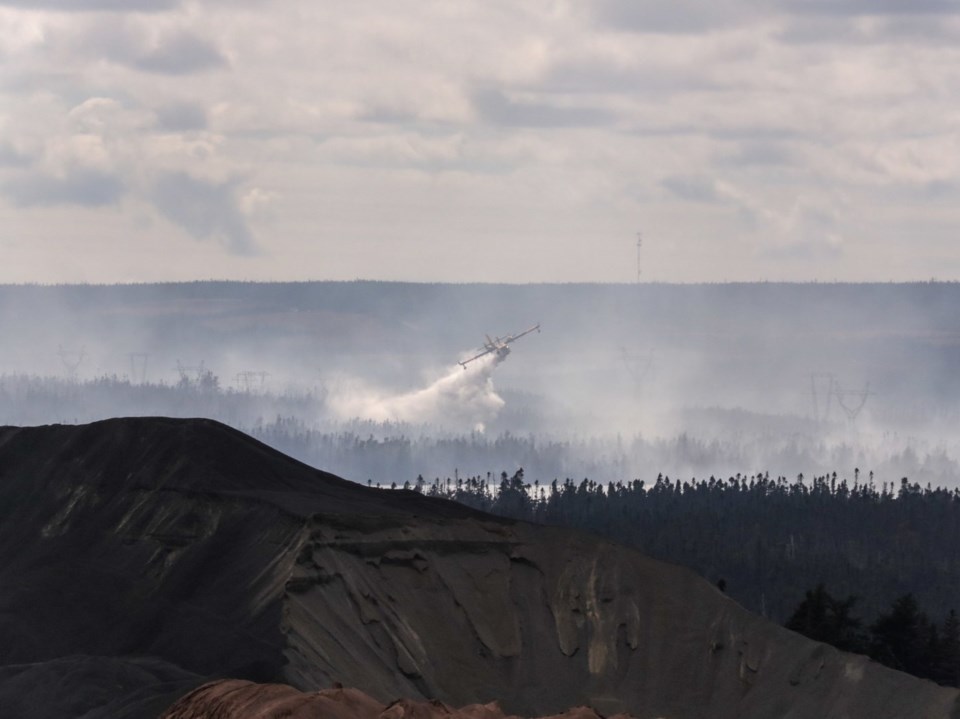ST. JOHN'S — About 60 students in eastern Newfoundland will be starting classes this September in an unfamiliar place after a wildfire destroyed their elementary school along the northwestern coast of Conception Bay.
As officials announced Cabot Academy was lost, Dale Lambe, president of the union representing teachers in the province, was thinking about what students will need to make it through a challenging transition.
"There's going to be a lot of trauma," Lambe said in a recent interview. "We're going to have to be very cognizant of that trauma that they've been through as families and as students."
Wildfires in Newfoundland and Labrador this year have destroyed homes, cabins and other structures, forcing the evacuation of thousands of people. Parents and school officials are keeping children top of mind as communities start to recover.
The largest wildfire in the province began more than two weeks ago near Kingston, N.L., about 125 kilometres northwest of St. John's by highway. As of Tuesday, the fire encompassed 107 square kilometres, and had destroyed 203 structures across five towns. Buildings lost include houses, sheds, a post office and Cabot Academy, in Western Bay, N.L.
The school had about 60 students from kindergarten to Grade 6. News of its destruction came as some families in the area were awaiting word on whether their homes were still standing.
"All the families, the students and the teachers in that area, they need to know that it's OK to feel anxious, overwhelmed and unsure. These are definitely extraordinary circumstances," Lambe said. "But they also need to know that they're not alone."
The teachers association is working with the provincial government to make sure educators and students in the area have the support they need, he said. "I know that we're going to be stronger together and that things will be rebuilt."
Jolene O'Connell was driving from work to her home in Paradise, N.L., a suburb of St. John's, when she saw smoke billowing up from a wildfire at Paddy's Pond. Her three daughters — two 13-year-olds and a 10-year-old — were at home.
"Just disbelief, you really detach yourself from it, particularly when you're thinking about getting home to your children who are probably afraid," O'Connell said in a recent interview. "It's very hard to shelter your children from what's happening when it's all over social media."
O'Connell, her husband, their daughters and their dog, hamster and betta fish — Swim Shadey — were forced to evacuate for three days last week. They stayed at a friend's house with another displaced family.
O'Connell said she did her best to stay calm and help her daughters navigate their own fears. She showed them maps so they could see where the fire was in relation to their house. And she helped them find reliable sources of information and steer clear of disinformation, including online speculation and rumours from friends.
"I was just being very practical, I was just answering questions. When your friends say things or ask — just come to us," she said, adding, "It's so important to remain clam but be realistic with your children."
Schools in rural Newfoundland are hubs in their towns, Lambe said, which makes the loss of Cabot Academy all the more devastating for Western Bay, which is home to about 395 people. But it also means that Cabot Academy students will be going to new schools with strong communities behind them working to make sure they're safe and welcomed.
"The openness of school communities to take them in and love them, and the compassion that's going to be shown by our provincial teachers in order to make sure that these (students) are looked after … that's going to be key for these children to feel comfort again," Lambe said.
This report by The Canadian Press was first published Aug. 20, 2025.
Sarah Smellie, The Canadian Press



